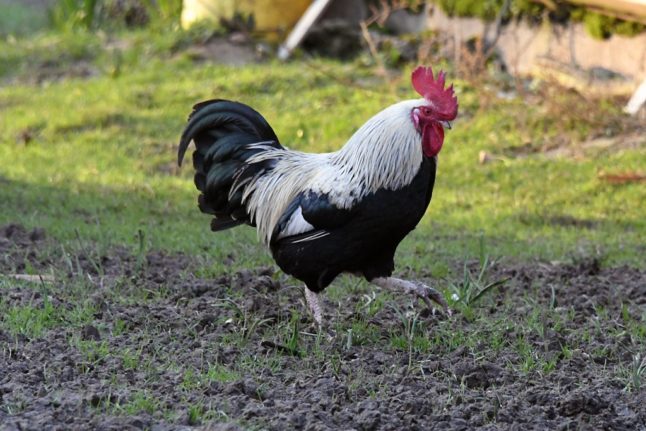French senators on Thursday gave final approval to a law proposed in the wake of several high-profile conflicts by village residents and vacationers, or recent arrivals derided as “neo-rurals”.
A rowdy rooster named Maurice in particular made headlines in 2019 after a court in western France rejected a bid to have him silenced by neighbours who had purchased a holiday home nearby.
READ ALSO How a noisy cockerel exposed France's urban and rural divide
“Living in the countryside implies accepting some nuisances,” Joel Giraud, the government's minister in charge of rural life, told lawmakers.
Cow bells (and cow droppings), grasshopper chirps and noisy early-morning tractors are also now considered part of France's natural heritage that will be codified in its environmental legislation.
“It sends a strong message,” said Pierre-Antoine Levi, the senator who acted as rapporteur for the bill.
“It can act as a useful tool for local officials as they carry out their educational and mediation duties,” he said.
The law is emblematic of growing tensions in the countryside between longtime residents and outsiders whose bucolic expectations often clash with everyday realities.
Corinne Fesseau and her rooster Maurice became the image of the fight when she was brought to court by pensioners next door over the animal's shrill wake-up calls.
Critics saw the lawsuit as part of a broader threat to France's hallowed rural heritage by outsiders and city dwellers unable or unwilling to understand the realities of country life.
Thousands of people signed a “Save Maurice” petition, and a judge eventually upheld the cock-a-doodle-doos.
In another case from 2019, a woman in the duck-breeding heartland of the Landes region was brought to court by a newcomer neighbour fed up with the babbling of the ducks and geese in her back garden.
A court in southwest France also threw out that case.



 Please whitelist us to continue reading.
Please whitelist us to continue reading.
About time too. Very sensible to have this enshrined in law especially as the post-Covid world will most likely see more city folk moving outward into the countryside.
If you live in a rural area you accept the good things about country living and maybe, for some people, the not so good, roosters crowing, farmyard smells etc just make me realize how lucky I am to live in the country!
Absolutely totally unnecessary. Why do we French think that everything has to made into law. Is it a relic of the mob mentality of the Revolution. vie au roi
Very good. I completely support this law.
If you can’t stand the smell, stay out of the countryside.
It was once said of a politician that “He shines and stinks like rotten mackerel in moonlight.” I wonder if his outpourings would be protected.
You have to expect animal related noises and smells in the countryside!
The real problem with noise in the countryside, is the one created by the screeching children staying in bloody gites and their loud mouthed British parents.
Hurray for Maurice, may he live a long and healthy life!!